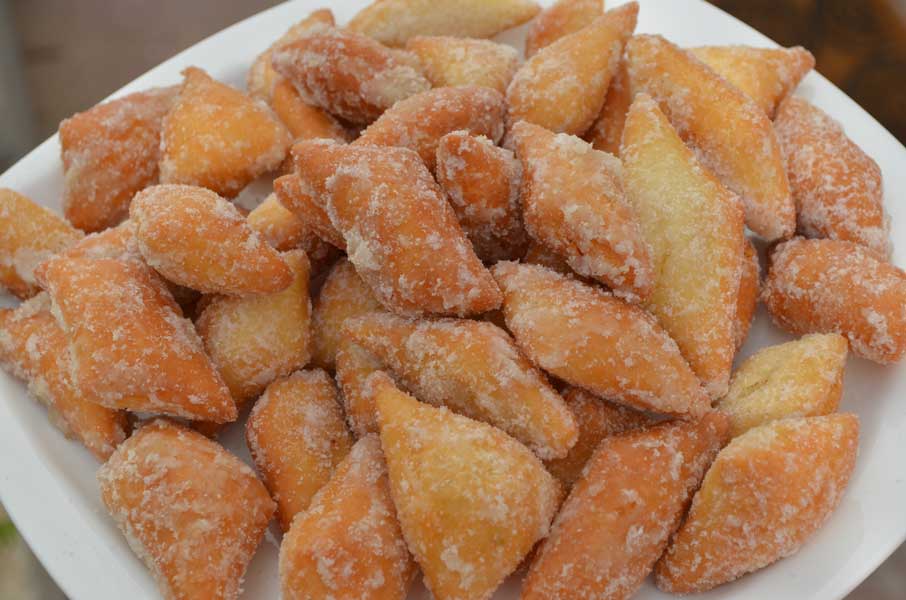
There’s a huge debate on the name of these cuties. I know them as Mitai and so we shall call them just that round here.
Looks can be ever so deceiving with Mitai, they look like you’ve slaved away in the kitchen when in reality you barely break a sweat!
Here is how to make them:
Sweet little donuts covered in sugar frosting
WWhat is the meaning of ” like so”. Don’t make sense to me. Please explain. Thanks.
I usually show the steps in the video on my youtube channel
What type of oil did you use to fry them in?
sunflower oil 🙂
Can I use milk instead of coconut milk?
yes you can
Can I use self raising flour instead?
yes you can
Hey hope your well, lovely video on YouTube. Though I am struggling to find the recipe for the sugar syrup
updating the recipe to include the sugar syrup 🙂
The ingredients lists 1/2 tsp baking powder but in the video method, you only add 1/4 tsp. So it is 1/2 tsp or 1/4 tsp. Can you please clarify?
Hi, i made a mistake in my video. its 1/2 tsp as indicated on the recipe card. Hugs
Just to let you know, this content looks a little bit strange from my smart phone. Who knows maybe it is just my cell phone. Great article by the way.
It does?
Is this actually a Swahili food? Is there any background information on this? Need to know for a school history project!
Hi Alycia, yes it is. Swahili food culture is diverse due to its many influences ranging from Indian,Arab and Portuguese.
Is there any background/historical information on this Mitai? In other words, what makes it Swahili? What makes it unique? Where did it come from? Please let me know if you have any information for my school project!